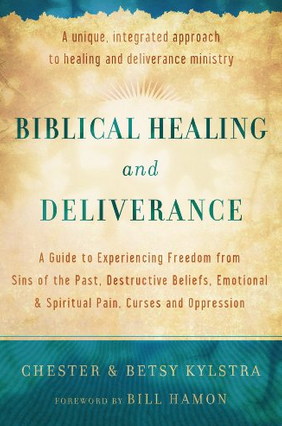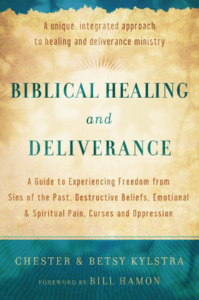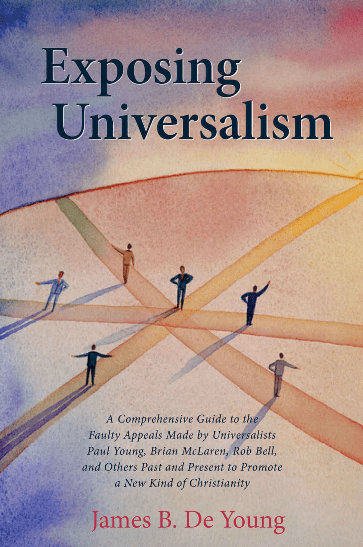
Warfare results when two wills clash in an effort to gain supremacy. The only lasting solution is the unconditional surrender of one of the parties. Until that happens, there may be temporary cessations of hostilities, but conflict always reemerges. Our life on planet earth is a series of conflicts and difficulties that eventually will terminate in physical death. Because of the entrance of sin, the beginning of hostilities against God’s will, all of life is a battle against hostile forces that seek to destroy us – evil or misguided people, germs, demons, natural disasters, the aging process, etc. Jesus told us that the devil, who is our archenemy and the archetype of resistance of God, seeks to steal, kill and destroy. (John 10:10) Peter wrote that Satan “prowls about like a roaring lion, seeking someone to devour.” (1 Peter 5:8) Warfare, stress, and difficulties, thanks to Adam’s sin, are a fact of life. We can either be terrified by it, surrender to the devil as a means to gain a temporary reprieve, or surrender to God and become part of his army as he brings final victory to his people. Ultimately, the battle is the Lord’s. It is he who took the initiative to regain what Adam lost. It is he who sent his Son to wrest dominion back from Satan.
The pivotal question is to whom will we surrender? Who will be our lord – God, Satan, or ourselves?
The essence of what it means to become a Christian is to surrender our wills to Jesus. This is what it means when we call him Lord. Surrender to Jesus means we repent from living self-directed lives and come under his authority. This takes place initially when we understand the gospel message and confess with mouths that he is our Lord. (Romans 10:9-10) Over our lifetimes, we will need to continually re-surrender every time we find ourselves resisting or doubting his sovereignty, wisdom, goodness, and love for us. It can be a scary thing to surrender ourselves to the will of an invisible God, whose ways are often confusing to us, and to trust that he is in control and always has our best interests in mind, even when everything around us seems to indicate the opposite. In all of life, and particularly when we are in the middle of a difficult or scary situation, if our wills are battling against God’s, lasting peace can only come through our unconditional surrender to God.
Oddly enough, even though we are surrounded by external dangers, sometimes we are our own worst enemy. Our sin and the fear and mistrust in our hearts toward God can sabotage our efforts to be true to Him. God has a plan for our lives, but if we stubbornly and fearfully refuse to go along with that plan, we can end up in an unprotected place outside of God’s best for our lives, in need of His correction and deliverance. Surrender to God and His will requires that we lay down our own agendas and our desire to control our lives and protect ourselves at all costs. It means that we must be open to the possibility that God will require us to go through something we dread.
Unless we unconditionally surrender to God, we cannot have unconditional peace.
By surrendering to God I do not suggest that we become passive. When we find ourselves under attack or in the middle of something scary to us, our first responsibility is to turn to God and acknowledge that he is sovereign over all things, including our current situation.
Unless God allows something to enter our lives, it will not take place. Satan is not in control.
God is not the author of evil, sin, suffering, or sickness. However, God’s sovereignty transcends all these things in a magnificent and mysterious way that is beyond explaining. Wisdom tells us that, no matter what God allows to come into our lives, we are first to acknowledge His sovereignty, seek Him and His will, and then respond as directed and appropriate.
Trust in the LORD with all your heart And do not lean on your own understanding. 6 In all your ways acknowledge Him, And He will make your paths straight. Proverbs 3:5-6 (NASB)
When the Philistines attacked David, his first response was to seek the Lord, who gave him specific instructions regarding how to proceed. (2 Samuel 5)
God created us to depend on him in all situations.
Adam’s first sin was to reject this divine order in an attempt to make his own decisions without reliance on God. A little knowledge can be dangerous. When Christians learn principles of authority and Christ’s victory, we sometimes think we no longer need to receive our directions from the Spirit any more. We think we can go it alone. This is wrong and dangerous. Too often we Christians, when we find ourselves in a scary situation, start rebuking the devil and claiming the promises, rather than seeking the Lord.
It may never occur to us that God has actually designed our situation in order to do a deep work in us. After all, God’s goal is to transform us into Christ’s image, not keep us comfortable.
When Jesus stood before Pilate, our Lord declared that the Roman ruler could only do to Him what God allowed. (John 19:10-11) The passion and crucifixion of our Lord was a time that God temporarily allowed darkness to rule.
Why didn’t you arrest me in the Temple? I was there every day. But this is your moment, the time when the power of darkness reigns.” Luke 22:53 (NLT)
Just prior to this, in the Garden of Gethsemane, Jesus first did business with His heavenly Father – the real Ruler in every situation. His prayer was a model for us:
“Father, if you are willing, please take this cup of suffering away from me. Yet I want your will to be done, not mine.” Luke 22:42 (NLT)
When we are about to enter a trial or are in the middle of one, we should first go to God and be sure our hearts and wills are submitted to him and what He wants to accomplish in our lives through the difficulty.
It is only against a backdrop of trust and submission that we can know more perfectly what other actions we must take.
This takes faith and humility.
If instead we simply begin to engage in what we might want to call “spiritual warfare,” we may find ourselves unhappily resisting God Himself. Imagine if Jesus had rebuked Satan instead of surrendering to death as God’s Lamb! This is what Peter earlier advised Jesus to do, but Jesus rebuked his misguided friend by telling him that he did not have the things of God in mind. (Matthew 16:21-23) Imagine how foolish it would be for us to fight against a situation orchestrated by God that is the avenue of our knowing Christ as Provider, Healer, or in whatever other way we need to know Him! Check in with God first. Find out what He wants to do; then, join His program. This is what it means to have Christ as Lord.
But He gives a greater grace. Therefore it says, "GOD IS OPPOSED TO THE PROUD, BUT GIVES GRACE TO THE HUMBLE." 7 Submit therefore to God. Resist the devil and he will flee from you. James 4:6-7 (NASB)
A severe trial or difficulty will often cause whatever rebelliousness and fear we still may have deeply buried in our hearts to bubble to the surface. God knew it was there all along, but we may be surprised to discover what is hidden inside of us.
The fire of affliction tests and reveals our hidden motives and the nature and strength of our faith.
If we believe that God is completely in charge of our lives and every situation and loves us enough to expose these things in order to deliver and transform us, we will better be able to cooperate with the process. Unless we go through the fire, we will never know for sure what is inside us. Until we face our fears, the strength of our faith is somewhat of a mystery. Soldiers who have never been in combat wonder what they will do under fire. No one can know for sure ahead of time. Once we go through our first battle, however, we know.
That which we fear can become for us a gateway into great growth and victory after we have faced it in faith and found that God’s grace enables us to overcome.
Job had to endure what he feared so that his subtle self-righteousness and proud indignation against God’s apparent lack of justice would bubble to the surface. God was far more interested in revealing Himself in a greater way to Job than in keeping him pain free.
When we realize that character transformation is a higher priority than our comfort and ease, we will begin to better understand God’s ways.
If we embrace God’s ways, we will be pliable in His hands for Him to mold us however He wishes.
As long as our peace hinges on a certain set of conditions or a certain answer to prayer, we will always be subject to our circumstances and miss out on experiencing real and lasting peace.
Being enslaved to our circumstances is a terrible way to live because we can never be completely at rest. What we dread could be just around the corner…and then what? It is no use trying to insulate ourselves from what we fear by “having enough faith.”
Faith was never designed to protect us from trials: rather, it keeps us while we are in trials.
Ponder Christ’s words:
I have told you these things so that in me you may have peace. In the world you have trouble and suffering, but take courage — I have conquered the world.John 16:33 NET
If we believe that trusting in Christ is our ticket to a trouble free life, we are in for a shock. Nothing could be further from the truth. God actually appoints us to tribulations.
We sent Timothy, our brother and fellow worker for God in the gospel of Christ, to strengthen you and encourage you about your faith, 3 so that no one would be shaken by these afflictions. For you yourselves know that we are destined for this.1 Thessalonians 3:2-3 NET
Trials, afflictions, suffering and tribulations work for us. They teach us perseverance and build character. Here is what Paul wrote to the church in Rome.
Not only this, but we also rejoice in sufferings, knowing that suffering produces endurance, 4 and endurance, character, and character, hope. 5 And hope does not disappoint, because the love of God has been poured out in our hearts through the Holy Spirit who was given to us. Romans 5:3-5 NET
It is only when we reconcile ourselves to the fact that life will contain many difficulties, and only when we choose to surrender to God in the midst of them, trusting in His love and power to accomplish in us His desire through them, that we are able to have peace that passes understanding. I call this “unconditional peace” because it does not depend on any outward circumstance or condition. Whether we live or die, we have peace. Whether we get the answer we want or not, we have peace.
Peace resides in a Person, and His name is Jesus. As we fully surrender to him, we receive all he has and is. One of His titles is the Prince of Peace. His peace becomes our peace, a peace that can never be shaken.
Peace I leave with you; my peace I give to you; I do not give it to you as the world does. Do not let your hearts be distressed or lacking in courage. John 14:27 NET
Moses wrote about this place of surrender and peace. It is a secret place hidden from life’s storms and the threats of the enemy. It is a place where God’s peace and presence reign undisturbed. We have access to that secret place by surrendering unconditionally to God’s will for our lives.
As for you, the one who lives in the shelter of the sovereign One, and resides in the protective shadow of the mighty king — 2 I say this about the LORD, my shelter and my stronghold, my God in whom I trust. Psalm 91:1-2 NET
Surrendering to God’s will and plan for our lives will not make us passive door mats. In fact, we will find that, as we unconditionally surrender to God, great faith will rise up in our hearts – faith to overcome.
Always be full of joy in the Lord. I say it again—rejoice! 5 Let everyone see that you are considerate in all you do. Remember, the Lord is coming soon. 6 Don’t worry about anything; instead, pray about everything. Tell God what you need, and thank him for all he has done. 7 Then you will experience God’s peace, which exceeds anything we can understand. His peace will guard your hearts and minds as you live in Christ Jesus. Philippians 4:4-7 (NLT)

If you want to read more about having peace in every situation, you can purchase my book, Seeing God’s Smile When Life Is Difficult, from Amazon.











